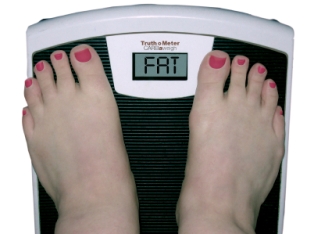Booming Boomers
Baby Boomers Now the Heaviest Americans
This article is brought to you by the word “boom.”
The unemployment rate? Booming, reaching a 26 year high in the month of June at 9.5 percent.
The amount of rain in New York? Booming, as June was one of the cloudiest, rainiest Junes on record – ever!
And the obesity rate in America? Booming, particularly among baby boomers.
The focus on the obesity rate in America always seems to be centered on America’s youth. And given that so many youth have sedentary proclivities – particularly in comparison to when I was a kid, when sedentary activities were far less prevalent – the finger pointing has been for good reason.
But the pointing of fingers might be better served by turning them around at our parents, as a recent report from the Robert Wood Johnson Foundation has found that baby boomers weight levels are booming across the country.
According to the report, not a single state showed decreases in weight levels, rather nearly half the states (23 states) showed increases in weight levels.
The heavyweight states are mostly in the southern belt, with Mississippi topping the corpulent charts for the fifth year in a row. Other heavy hitters include Alabama, West Virginia and Tennessee, three states that now have the dubious distinction of having a 30 percent obesity rate.
Perhaps the most sobering statistic – for baby boomers, at least – is just how poorly middle-agers fared. In all 50 states, the rate of obesity was highest among the 55 to 64 age group than any other age grouping. The fattest boomers come from the Heart of Dixie and Water Wonderland (i.e. Alabama and Michigan, respectively).
If any positive news can be taken away from this report, it’s that there were fewer states that gained weight this year than last year. Last year, 37 states increased their average weight levels.
Then again, last year, at least some states lost weight. Not the case this year. This year, states either stayed the same or gained weight.
With healthcare and health insurance being such an issue these days – as an estimated 47 million Americans are uninsured, according to most reports – keeping our weight levels in check has never been more important. Obesity is the cause of more deaths than smoking is today. Who would ever have guessed that back in, say, 1990, when no state had a rate of obesity higher than 20 percent (today, the only state that has a sub-20 percent obesity rate is Colorado).
As Jeff Levi says, the director of the group that funded the study, there’s no “magic bullet” to beating obesity. No pill, no waving of a magic wand.
The only way to turn obesity levels from something horrific into something terrific (1991 levels, when obesity was below 20 percent) is with two things: diet and exercise.
It’s the oldest trick in the book, yet one that so few have been able to learn.
Sources:
msnbc.msn.com
Related Posts
 
|
Enjoy this article? We guarantee your privacy. Your email address will NEVER be rented, traded or sold. |
Visit my new site: Self Help On The Web
 |
 |
Posted: July 7th, 2009 under Obesity.
Tags: baby boomer statistics, obesity statistics, obesity statistics america








Comments
Comment from kwinar
Time July 9, 2009 at 11:02 am
I wonder if Frank has seen this info. From WDDTY (What doctors don’t tell you)
Oils help women lose weight without dieting or exercise
09 July 2009
Two common oils can help women lose weight, even if they don’t diet or exercise, major new scientific research has discovered.
Safflower oil and CLA (conjugated linoleic acid) were equally as effective when they were tested on a group of 35 women, all of whom were considered to be obese with a body-mass index (BMI) of 30 or higher.
Women who took safflower oil supplements for 16 weeks lost between two and four pounds of fat around the trunk, while CLA ‘significantly reduced’ the BMI score, and helped the women lose nearly four pounds, over the same period.
The women were told not to diet, or exercise more than they usually did, during the 32 weeks of the trial. The research was carried out by Ohio State University whose Martha Belury, and lead researcher, commented: “I never would have imagined such a finding. This study is the first to show that such a modest amount of (oils) may have a profound effect on body composition in women.”
(Source: American Journal of Clinical Nutrition, 2009; in print).